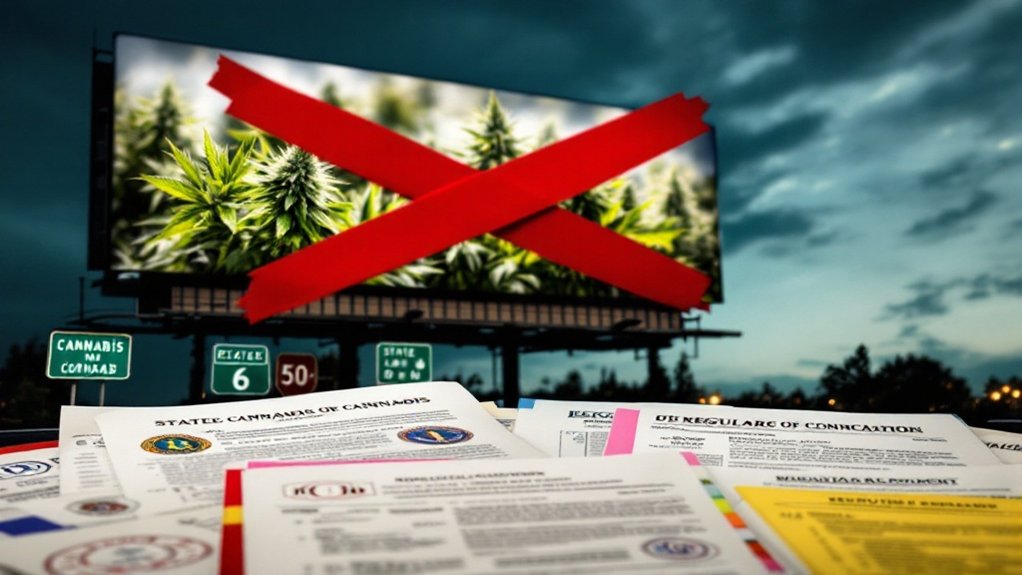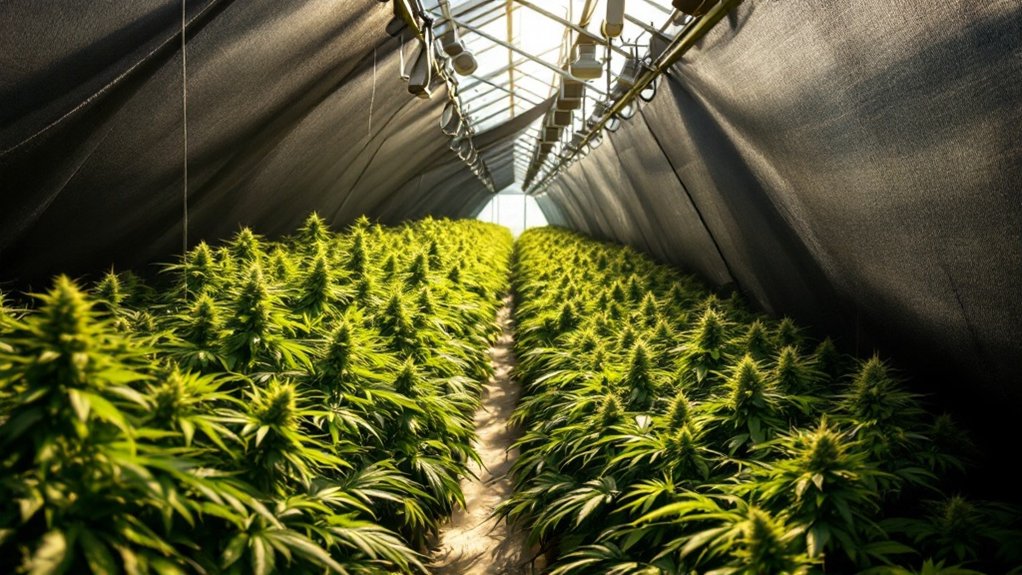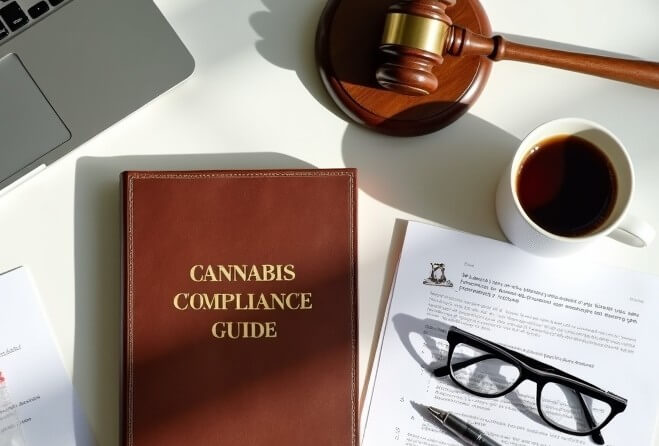Cannabis advertising in the US faces a complex regulatory landscape due to conflicting state and federal laws. While states with legal cannabis establish their own rules, they typically include restrictions on advertising near schools, content targeting minors, and unsubstantiated health claims. Advertisers must navigate age verification requirements, ensuring at least 71.6% of the audience is 21 or older. Location-based limitations, mandatory health warnings, and platform-specific rules create additional compliance challenges for industry participants seeking to promote their products.

While cannabis legalization has expanded across numerous states in recent years, advertising regulations governing the industry remain complex and multifaceted. The regulatory landscape presents significant challenges due to the ongoing federal prohibition, which imposes substantial restrictions despite state-level legalization. Most advertising oversight falls to individual states, creating a patchwork of regulations that can vary dramatically across jurisdictions. Federal nominee Terrance Cole has prioritized cannabis rescheduling review, which could potentially impact advertising regulations if cannabis moves from Schedule I to Schedule III. The Federal Communications Commission continues to prohibit cannabis advertisements on regulated airwaves, effectively eliminating television and radio as viable nationwide platforms.
Age restrictions represent a cornerstone of cannabis advertising regulations throughout legalized states. Advertisers must guarantee that at least 71.6% of their audience is reasonably expected to be 21 or older. Marketing materials cannot target minors or appear in media where underage viewers might constitute a significant portion of the audience. This extends to event sponsorships, which are prohibited unless reliable evidence demonstrates that no more than 20% of attendees are under 21. Mobile marketing faces particularly stringent requirements, limited to opt-in users verified as adults, with mandatory opt-out mechanisms required.
Age verification forms the foundation of cannabis marketing law, requiring advertisers to ensure adult-majority audiences while implementing strict protections against youth exposure.
Location-based restrictions further constrain cannabis advertising opportunities. Advertisements cannot appear within 200 feet of elementary or secondary schools in most jurisdictions. Television and radio advertisements, where permitted at all, cannot air between 6:00 a.m. and 10:00 p.m. Outdoor advertising, including billboards, faces varying degrees of regulation depending on the state, with some jurisdictions limiting the number and placement of such advertisements. A recent New York Supreme Court ruling against third-party cannabis advertising has created additional uncertainty for marketers in that state’s recreational market. Public transportation vehicles and government-owned property typically prohibit cannabis advertising entirely.
Content regulations impose additional limitations on messaging strategies. Advertisements must avoid false or misleading statements regarding product safety or efficacy. Many states prohibit price discounts, giveaways, or loyalty programs that might incentivize excessive consumption. Bright colors, cartoon characters, and imagery likely to attract minors are universally banned. Health claims require substantiation and approval from state authorities, and every advertisement must display mandated health warnings and age restrictions.
The regulatory environment remains dynamic as states continue to refine their approaches. New York permits unlimited outdoor signage for retail establishments, while other states impose strict limits. Digital advertising enjoys greater freedom in some jurisdictions while facing near-total prohibition in others. Non-legalized states like Texas maintain extensive bans on virtually all cannabis advertising.
State cannabis control boards frequently update their regulations, requiring constant vigilance from industry participants to maintain compliance.
Frequently Asked Questions
Can Cannabis Brands Advertise on National Television Networks?
Cannabis brands cannot currently advertise on national television networks due to federal prohibition.
Despite state-level legalizations, cannabis remains a federally controlled substance, putting broadcasters at risk of losing their licenses if they air such advertisements.
The proposed SAFE Advertising Act aims to create protections for broadcasters who accept cannabis advertising, provided at least 70% of the audience is 21 or older.
Until federal law changes, nationwide cannabis television advertising remains prohibited.
How Do Cannabis Advertising Restrictions Differ Across Legal States?
Cannabis advertising restrictions vary greatly across legal states, creating a complex regulatory landscape for businesses. Some states permit outdoor advertising with strict buffers from youth-centered locations, while others prohibit billboards entirely.
Digital marketing requirements differ in age-verification protocols and platform limitations. All states mandate warning labels and prohibit content appealing to minors, but the required size, placement, and specific language of these warnings follow state-specific guidelines.
Advertising medium restrictions also vary, with some states allowing limited broadcast ads while others forbid them completely.
Are Celebrity Endorsements Allowed in Cannabis Marketing?
Celebrity endorsements are permitted in cannabis marketing but exist within a complex regulatory framework.
States that have legalized cannabis impose varying restrictions on these partnerships, with some requiring disclosure of endorsement deals to regulators.
Federal oversight comes primarily from the FTC, which mandates that endorsements be truthful, substantiated, and transparent about material connections between celebrities and brands.
Despite federal cannabis prohibition, many celebrities have successfully launched cannabis brands or formed partnerships with existing companies.
What Penalties Exist for Violating Cannabis Advertising Regulations?
Violations of cannabis advertising regulations can result in significant consequences across multiple dimensions.
Federal penalties, though currently unenforced in legal states, could potentially include imprisonment and substantial fines under the Controlled Substances Act.
At the state level, businesses face financial penalties ranging up to $5,000 per violation in California, with amounts varying across states.
License-related consequences include suspensions or permanent revocations, while additional regulatory actions may involve advertising bans, mandatory compliance training, or required pre-approval for future advertisements.
Can Cannabis Companies Sponsor Public Events?
Cannabis companies can sponsor public events in many states, though regulations vary greatly.
Some states permit sponsorships for trade shows and concerts when most attendees are over 21, often requiring that less than 10-30% of the audience be underage.
Federal restrictions limit displaying cannabis brand elements at sports or cultural events and prohibit naming facilities after cannabis producers.
Third parties hosting sponsored events may also face liability for non-compliant promotions.









